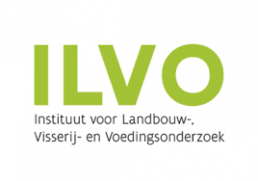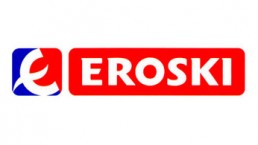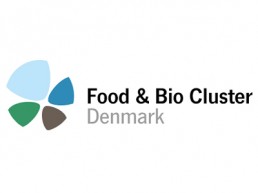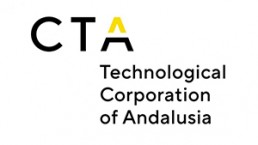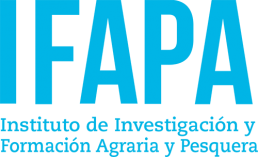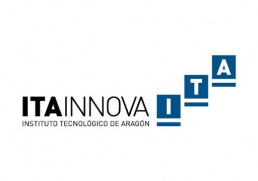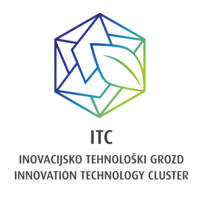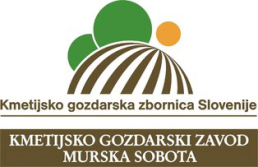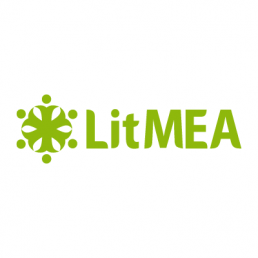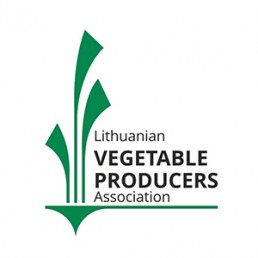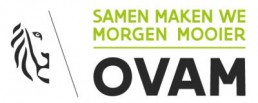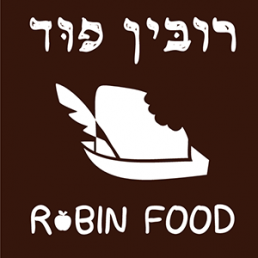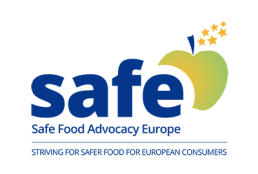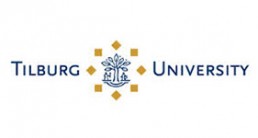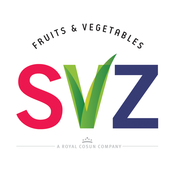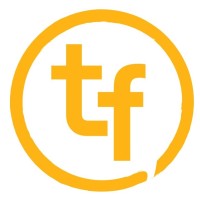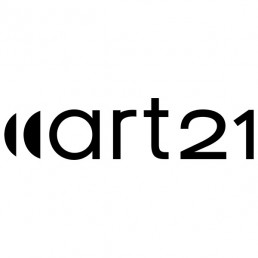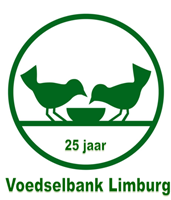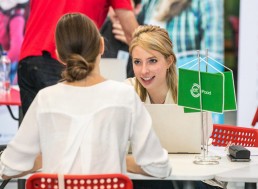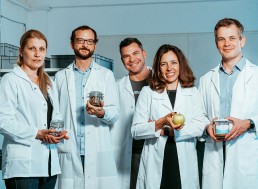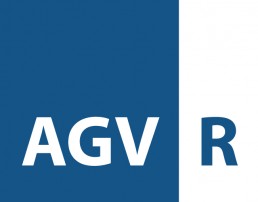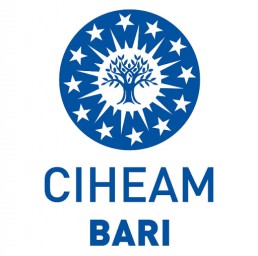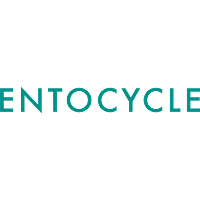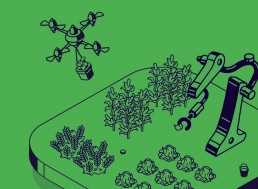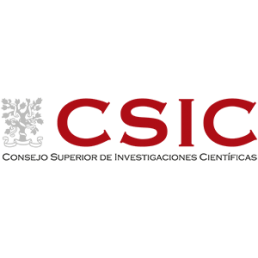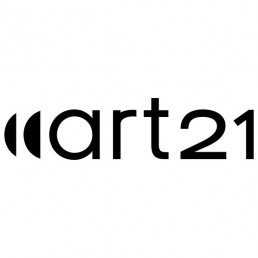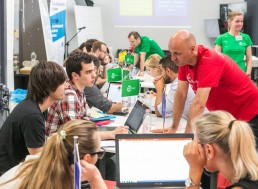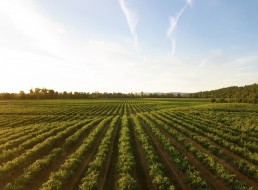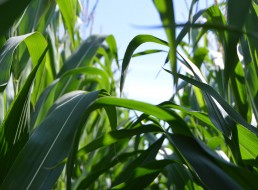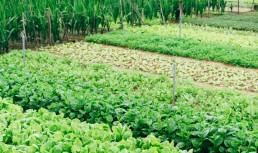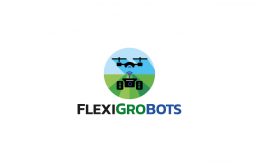ZeroW
Systemic Innovations Towards a Zero Food Waste Supply Chain
ZeroW has set the ambitious target of playing a key role in the transition of current food systems towards halving Food Loss & Waste (FLW) by 2030 and reaching near-zero FLW by 2050.
ZeroW provides significant impacts through the demonstration of innovations in nine real-life food chains, by employing a systemic innovation approach, to effectively address the multidimensional issue of FLW.
This involves:
- Pre-identifying systemic innovations, that incorporate multiple interlinked dimensions (process, organisational, strategy, marketing, product, technological, governance, etc.), which are tested and demonstrated;
- Steering the evolution of innovations towards higher levels of systemic readiness and impact, using a Living Lab co-creation and multi-actor collective learning approach;
- Enhancing the Living Lab actors’ innovation advancement capability with shared resources facilitating new ways and means of cooperating and co-developing innovations;
- Developing context-specific trajectories for the systemic innovations (from ideation to scaling-up and commercialisation) leading to the provision of currently missing end products and services that align with consumer attitudes, food actor needs and policy trends.
Moreover, ZeroW establishes a clear ‘FLW impact trajectory’, from demonstrator results (2025), scaled up to meet the F2F 2030 goals, and steered through a ‘just transition pathway’ towards a near-zero FLW in 2050.
The ZeroW project has received funding from the European Union’s Horizon 2020 research and innovation programme under grant agreement No 101036388.
Project website: zerow-project.eu
Project coordinator: Inlecom Commercial Pathways Company Limited by Guarantee (Ireland)
Project partners:
- AgriFood Lithuania DIH (Lithuania)
- Allmicroalgae Natural Products SA (Portugal)
- Asociacion de Investigacion de Industrias Carnicas del Principado de Asturias (Spain)
- Asociatia Clusterul Agro-Food-Ind Napoca (Romania)
- Asociatia Transilvania IT (Romania)
- Aves Nobles y Derivados, S.L. (Spain)
- Biosense Institute – Research and Development Institute for Information Technologies in Biosystems (Serbia)
- Digiotouch OU (Estonia)
- DIL Deutsches Institut Fur Lebensmitteltechnik EV (Germany)
- Eigen Vermogen Van Het Instituut Voor Landbouw – En Visserijonderzoek (Belgium)
- Eroski Scoop (Spain)
- F6S Network Ireland Limited (Ireland)
- FBCD AS (Denmark)
- Fondazione Istituto Sui Trasporti e la Logistica (Italy)
- Fundacion Corporacion Tecnologica de Andalucia (Spain)
- Grupo La Caña, S.L. (Spain)
- ICLEI European Secretariat GMBH (Germany)
- Innovatiesteunpunt Voor Landbouw Enplatteland (Belgium)
- Institute of Communication and Computer Systems (Greece)
- Instituto Andaluz de Investigaciony Formacion Agraria Pesquera Alimentaria y de la Produccion Ecologica (Spain)
- Instituto Tecnologico De Aragon (Spain)
- Instituto Tecnologico del Embalaje, Transporte y Logistica (Spain)
- ITC – Inovacijsko Tehnoloski Grozd Murska Sobota (Slovenia)
- Kmetijsko Gozdarska Zbornica Slovenije Kmetijsko Gozdarski Zavod Murska Sobota (Slovenia)
- Konnecta Systems Limited (Ireland)
- Lietuvos Maisto Eksportuotoju Asociacija (LitMEA) (Lithuania)
- Lithuanian Vegetable Producers Association (Lithuania)
- Multiscan Technologies SL (Spain)
- Nederlandse Organisatie Voor Toegepast Natuurwetenschappelijk Onderzoek TNO (Netherlands)
- Novamont SPA (Italy)
- Openbare Vlaamse Afvalstoffenmaatschappij (Belgium)
- Robin Food (Israel)
- Safe Food Advocacy Europe (Belgium)
- Sintef AS (Norway)
- Sonae MC – Servicos Partilhados, SA (Portugal)
- Stichting Katholieke Universiteit Brabant (Netherlands)
- SVZ International BV (Netherlands)
- Termoformas de Levante SL (Spain)
- UAB ART21 (Lithuania)
- Universidade do Minho (Portugal)
- Univerza v Mariboru (Slovenia)
- VLTN GCV (Belgium)
- Voedselbank Limburg (Belgium)
- Wageningen University (Netherlands)
- Waterford Institute of Technology (Ireland)
EWA
10 talented female entrepreneurs from Lithuania will go through a 6-months entrepreneurial programme tailored to create business solutions for specific challenges in agrifood. After this period, they will have the required knowledge, confidence and support to meet and exceed their aspirations, leading them to successfully start and develop sustainable businesses. The programme is designed for women regardless of their age, family situation, experience in business. We just need your idea and willingness to revolutionize the food system together with us!
Online training
Selected entrepreneurs will benefit from 6 months long tailor-made training on specific business and entrepreneurial topics and access to resources to improve their skills.
Mentorship/Ongoing Support
More than 20 hours of personalised mentoring, from experts in business, agrifood and successful entrepreneurs. EIT Food Startup Guide will be offered free of charge.
Power of community
Participation in entrepreneurship and networking events with high-level stakeholders. All applicants will have access to our community and will benefit from EWA network which provides direct access to over 200 mentors and female entrepreneurs within the agrifood ecosystem.
Funding opportunities
Beneficiaries will have the chance to win up to 10,000 euros per country, discover other EIT Food programmes and access investors, business angels and corporates to take their businesses to the next level.
Impact
10 women will be upskilled on how to start their agrifood business and be successful; receiving personalised mentoring, training and becoming part of the big EIT Food community.
The ultimate goal is to overcome the existing gender gap in the agrifood sector with a special focus on suburban and rural areas: promoting inclusivity and diversity between business founders, and increase female founded startups.
Robotics4EU
Robotics with and for Society – Boosting Widespread Adoption of Robotics in Europe
The aim of Robotics4EU is to ensure a more widespread adoption of (AI-based) robots in healthcare, inspection and maintenance of infrastructure, agri-food, and agile production. It will be reached through the implementation of the responsible robotics principles among the robotics community that results in societal acceptance of the robotics solutions in application areas. Robotics4EU will create and empower the EU-wide responsible robotics community representing robotics innovators from companies and academia in the fields of healthcare, inspection and maintenance of infrastructure, agri-food, and agile production as well as citizens/users and policy/decision makers by rising awareness about non-technological aspects of robotics (ethics, legal, socioeconomic, data, privacy, gender) by organising community building and co-creation events bringing together robotics community and citizens, advocating for the responsible robotics among all stakeholder groups, incl. policy makers, developing a responsible robotics maturity assessment model and bringing the project results to the standardization bodies.
Robotics4EU will implement the following set of activities: 1) assessing the needs and developing a responsible robotics maturity assessment model that is a practical tool for the robotics developers and helps them to strategically plan and the uptake of the legal, societal and ethical aspects of robotics; 2) empowering the robotics community by organising capacity building events in healthcare, agri-food, agile production and infrastructure; 3) assessing robotics ideas and applications provided by the industry with end-users (via online consultation and co-creation workshops); 4) reaching out to the policy makers by compiling a responsible robotics advocacy report, organising a high-level policy debate and transferring the results to the standardization bodies.
The Robotics4EU project has received funding from the European Union’s Horizon 2020 research and innovation programme under grant agreement No 101017283.
Project website: www.robotics4eu.eu
Project coordinator: CIVITTA Eesti AS (Estonia)
Project partners:
- AgriFood Lithuania DIH (Lithuania)
- Fonden Teknologiradet (Denmark)
- Globaz, S.A. (Portugal)
- Laboratoire National de Metrologie et d’Essais (France)
- Mittetulundusuhing Robotex (Estonia)
- Norges Teknisk-Naturvitenskapelige Universitet NTNU (Norway)
CoRoSect
Cognitive Robotic System for Digitalized and Networked (Automated) Insect Farms
By 2030 over 9 billion people, along with animals raised for food or kept as companions, will need to be fed, generating inconsistencies between the demand and supply of food resources and promoting food insecurity by rendering food as unavailable, unaffordable, unevenly distributed or unsafe to eat. Therefore, food security represents the big challenge of the 21st century and in that context one promising potential sustainable solution is insect farming. Edible insects are set to be approved in EU by late 2020 as novel food and insects also being a value food sources for farming animals; however research, innovation, farming protocols development and standardization, and a technology leap by robotizing and automatizing the mass rearing in insect farms is needed in order to concurrently scale the production and dramatically decrease the production costs.
CoRoSect addresses the dramatic need of coupling research on bionomics and life cycle of insects intended to be used as food and feed, with new robotic tools and protocols for mechanization and automation of insect farming, which is a critical point stressed by the Technical Expert Consultation on Assessing the Potential of Insects as Food and Feed in Assuring Food Security. CoRoSect forms a novel integrated cognitive robotic ecosystem where the repetitive but also cognitively and physically demanding tasks requiring increased manual effort or continuous human supervision during the insects’ life cycle, are replaced by automatic robotic-based procedures which will also draw upon research performed on understanding biological, technical and economic requirements of insect rearing and optimizing all involved processes. Focusing on real insect rearing problems, CoRoSect technologies will be evaluated through large-scale pilots in 5 insect farms placed in 5 European countries rearing three of the most commonly occurring species, thereby contributing essentially to a secure and sustainable food supply in Europe.
The CoRoSect project has received funding from the European Union’s Horizon 2020 research and innovation programme under grant agreement No 101016953.
Project website: corosect.eu
Project coordinator: Universiteit Maastricht (Netherlands)
Project partners:
- AgriFood Lithuania DIH (Lithuania)
- AGVR BV (Netherlands)
- ATOS IT Solutions And Services Iberia SL (Spain)
- Centro Internazionale Di Altistudi Agronomici Mediterranei (Italy)
- Entocycle LTD (United Kingdom)
- Entomotech SL (Spain)
- Ethniko Kentro Erevnas Kai Technologikis Anaptyxis (Greece)
- Field Lab Robotics BV (Netherlands)
- Foodscale Hub Entrepreneurship Andinnovation Association (Serbia)
- Fundacion Para Las Tecnologias Auxiliares De La Agricultura (Spain)
- Hochschule EMDEN/LEER (Germany)
- Invertapro AS (Norway)
- Katholieke Universiteit Leuven (Belgium)
- Luonnonvarakeskus (Finland)
- Nasekomo AD (Bulgaria)
- Oulun Ammattikorkeakoulu OY – Oulu University of Applied Sciences (Finland)
- Robotnik Automation SLL (Spain)
- Societa Agricola Italian Cricket Farm SRL (Italy)
FlexiGroBots
Flexible Robots for Intelligent Automation of Precision Agriculture Operations
Agricultural robotics solutions can integrate a variety of robots for a variety of monitoring and targeted intervention tasks, to increase farm productivity, efficiency and sustainability through support of automated precision farming operations. Despite the rising farmer investment in farm/agricultural robots, most deployable robotic systems are meant to automate only specific tasks. The wide variety of tasks that need to be fulfilled in a single precision agriculture operation or mission makes it extremely unprofitable to address its automation with task-specific robots. These challenges result in a lack of flexibility of current heterogeneous multi-robot systems that poses low returns on investment and high risks for farmers. In order to become cost-effective, heterogeneous multi-robot systems needs to become more flexible by employing more versatile (e.g. multi-task) robots which collaborate to accomplish complex missions; ensuring scalable human oversight and intervention through adaptive mission control mechanisms (e.g. without information overload /overwhelming effort from the farmer); allowing the farmer to profit from robotics operational data.
FlexiGroBots proposes a Platform for developing heterogeneous multi-robot systems and applications which allows for i) more versatility by using the same robots for different observation and intervention tasks, in different missions, throughout the crop life cycle, ii) more cooperation between heterogeneous (ground and aerial) robots to accomplish more complex missions; iii) more valuable data to generate accurate insights into the fields, crops and robotics operations by combining data from IoT sensors, satellites and data collected by the robots; iv) more autonomy for real-time adaptation of mission plans as well as robot behaviour at the crop level, given operational conditions and real-time insights; v) more precision to carry out specific tasks in a very localized way, gaining accuracy and lowering costs.
The FlexiGroBots project has received funding from the European Union’s Horizon 2020 research and innovation programme under grant agreement No 101017111.
Project website: lexigrobots-h2020.eu
Project coordinator: ATOS IT Solutions and Services Iberia SL (Spain)
Project partners:
- Agencia Estatal Consejo Superior De Investigaciones Cientificas (Spain)
- AgriFood Lithuania DIH (Lithuania)
- Agrosmart SIA (Latvia)
- Biosense Institute – Research and Development Institute for Information Technologies in Biosystems (Serbia)
- Bodegas Terras Gauda SA (Spain)
- Centre for European Policy Studies (Belgium)
- International Data Spaces EV (Germany)
- Luonnonvarakeskus (Finland)
- Mtech Digital Solutions OY (Finland)
- Probot OY (Finland)
- Seresco SA (Spain)
- Teknologian Tutkimuskeskus VTT OY (Finland)
- UAB ART21 (Lithuania)
- Wageningen University (Netherlands)
- Zeleni Hit doo Beograd (Serbia)
EIT Jumpstarter
EIT Jumpstarter is a very selective, competitive program; participating in it opens doors towards the European markets and connects the best teams with the three EIT Communities’ large industrial partners such as GE Healthcare, Siemens, Philips, Roche, Bosch, Nestlé, Pepsico and Maspex, among others.
During the 8 months-long programs, you will find and validate the best business model for your innovative idea. The courses build on the lean start-up methodology from Silicon Valley translated to the European Environment. You will learn about: how to refine your deal, market segmentation, customer value proposition, market segmentation, financials, investment basics, legal basics
You will receive travel and accommodation support during the program, and the best teams in each category will have the chance to win a €10,000 money prize.
Interested? Follow the timeline and the information: https://eitjumpstarter.eu/
Important dates
- Deadline for submitting business ideas: 30 April 2021 at 23:59 CET
- Selection of ideas and invitation of the bootcamps: 16th May 2021.
- Bootcamps will be held online in June 2021
- Local joint training: September 2021
- Grand Final: November 2021
Deadline for Applications: Until April 30
TEST FARM
Have you created an innovative solution that can make a positive change and improve agricultural practices? Test Farms programme will help to validate your agritech technology or product in real conditions and increase your chances for commercial success! You will get the funding of 3 000 euros! For whom? For startups with the innovative prototypes for agricultural challenges.
Click here: https://www.f6s.com/test-farms-2021
Have any questions? E-mail us at hub@agrifood.lt
Deadline for Applications: until April 30
TEAMUP
TeamUp matches leading technologists with top business professionals and supports them in building impactful agrifood ventures. We help you find the right co-founder and provide expert guidance, training, networking, and funding to help you grow your agrifood startup.
For whom?
1) For people with agrifood technologies or solutions;
2) For people with skills and experience to build an agrifood startup.
Apply here: https://www.eitfood.eu/projects/teamup
Deadline for Applications: until April 30
Registration to TEST FARM has already started
Have you created an innovative solution that can make a positive change and improve agricultural practices? Test Farms programme will help to validate your agritech technology or product in real conditions and increase your chances for commercial success! You will get the funding of 3 000 euros! For whom? For startups with the innovative prototypes for agricultural challenges.
Click here: https://www.f6s.com/test-farms-2021
Have any questions? E-mail us at hub@agrifood.lt
Deadline for Applications: until April 30
FlexiGroBots, EU-funded project for enabling efficient and automated precision agriculture operations using flexible multi-robot systems
The project focuses on the development of a novel platform for building mission control of heterogeneous multi-robot systems which will be validated of three real-life scenarios: grapevines, rapeseeds, and blueberries.
Madrid, Spain. March 22, 2021. Coordinated by the Research and Innovation hub of the Atos Group in Spain, FlexiGroBots project started officially on the 1st of January of 2021 funded by the European Commission under the Horizon 2020 Programme within the topic of robotics for agri-food and agile production which envisioned the establishment of large-scale pilots, addressing both technical and non-technical issues, such as socio-economic impact, novel business models, ethical issues, and connections to AI, Big Data and IoT.
The adoption of novel technologies by the agriculture sector has increased in the past years, unleashing a new paradigm – Agriculture 4.0. Within it, robotics, AI and automation play a major role in crop production and precision agriculture operations, optimising resources based on relevant data. Nevertheless, there is a gap between the installed and the real performance of different types of robots used for specific tasks.
FlexiGroBots project will run for 36 months with the main objective of creating and validating its open platform for flexible heterogeneous multi-robot systems including Unmanned Aerial Vehicle (UAVs) and Unmanned Ground Vehicle (UGVs). The platform will integrate existing technology platforms and components provided by various digital transformation initiatives and ecosystems, for addressing the most imperative needs of the Agriculture sector in terms of multifunctional robots, multi-robot cooperation, autonomy and awareness, and actionable data.
Through the FlexiGroBots platform, the project aims to empower roboticist, engineers, and service providers to build and deploy flexible heterogeneous multi-robot systems in the Agri-Food sector, while also providing various benefits to farmers around the world:
– Versatility for using the same robots for different observation and intervention tasks throughout the crop life cycle
– Cooperation between ground and aerial robots for more complex missions
– Relevant data to power AI-driven agricultural operations
– Autonomy for real-time adaptation of mission plans and robots’ behaviour at crop level
– Precision in agricultural operations to carry out accurate tasks, hence reducing costs and environmental footprint
Furthermore, the platform foresees an agricultural data space integrating a set of common data services to enable data collection and integration, publication and sharing, and security and trust, following the International Data Space Association reference architecture, and considering also data coming from geospatial data platforms such as Copernicus and Information Access Services (DIAS).
The FlexiGroBots platform and its different components will be demonstrated and validated within three real-life pilots of significant economic value, posing different levels of complexity regarding crops, number and types of robots used from one side, and varying levels of complexity in relation to geographical regions, weather conditions and national regulations, on the other.
This project has received funding from the European Union’s Horizon 2020 research and innovation programme under grant agreement No 101017111
– Grapevines (Spain): Demonstrate the high capacity and versatility of robots to carry out different tasks in vineyards, contributing to the economic profitability and quality of grapes for wine production.
– Rapeseeds (Finland): Demonstrate time-critical pest management and robotization of heavy machinery fleets in grassland management.
– Blueberries (Serbia and Lithuania): Demonstrate the potential of novel robotic solutions for blueberry farming supported by advanced remote sensing, deep learning, and decision-support techniques.
FlexiGroBots brings together a multidisciplinary consortium composed of 16 different organisations and companies, from 8 different countries, with different areas of expertise that makes it possible to build the platform and its services, define the validation roadmap and activities on the three scenarios, and outline the go-to-market and sustainability plan for the expected results. The project will also provide a consolidated report on ethical AI in Agri-Food based on the lessons learned throughout the execution of the project.
The partners are Atos (Spain), Spanish National Research Council – CSIC (Spain), Seresco (Spain), Bodegas Terras Gauda (Spain), Centre for European Policy Studies -CEPS (Belgium), Wageningen University & Research (Netherlands), International Data Spaces Association – IDSA (Germany), BioSense Institute (Serbia), Zeleni hit (Serbia), Art 21 (Lithuania), AgriFood Lithuania, Agrosmart (Latvia), Probot OY (Finland), Natural Resources Institute Finland – LUKE (Finland), VTT Technical Research Centre (Finland), and MTECH Digital Solutions (Finland).
Quote:
“FlexiGroBots will enable farmers, farmer associations and the agriculture industry to use multi-robot systems for intelligent automation of farm operations, increase farm production efficiency and economic sustainability. On top of that, the project will also benefit Digital Innovation Hubs (DIHs) throughout Europe, which are specialized in robotics, agriculture and associated fields, as well as innovation developers and agriculture service providers including SMEs working in close cooperation and proximity to farmers” Daniel Calvo Alonso, Head of the AI, Data & Robotics Unit at Atos Research and Innovation, and FlexiGroBots Project Coordinator.
For more information, visit: flexigrobots-h2020.eu
Follow FlexiGroBots on Twitter and LinkedIn, and subscribe to its biannual newsletter for more information on the progress and results achieved.
About FlexiGroBots:
FlexiGroBots – Flexible robots for intelligent automation of precision agriculture operations – is an EU-funded project under the Research and Innovation programme H2020 of the European Commission with the Grant Agreement Nº101017111. FlexiGroBots goal is to make multi-robot systems cost-effective for precision agriculture operations by developing a platform able to make them flexible enabling versatility, collaboration, scalability, autonomous capabilities, and in general, ensuring a data economy that facilitates the development of AI-driven capabilities on robots.
For further information about the project, please contact FlexiGroBots Project Coordinator, Daniel Calvo Alonso, Atos: daniel.calvo@atos.net, and for any media/communication enquiries contact FlexiGroBots Communication Manager, Ana María Morales, Atos: ana-maria.moralesperez@atos.net.



